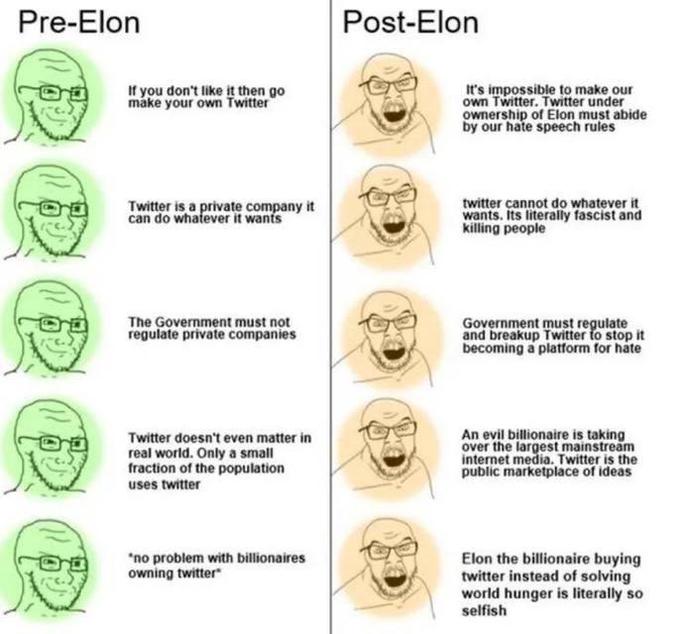RFK Jr.'s Pesticide Claims Met With Resistance From Trump Administration

Table of Contents
RFK Jr.'s Core Arguments Regarding Pesticide Dangers
RFK Jr. has been a vocal critic of pesticide use, arguing that exposure to certain chemicals poses significant risks to human health and the environment. His concerns extend beyond the immediate effects of pesticide poisoning to encompass long-term health consequences.
Specific Pesticide Concerns
RFK Jr. has specifically targeted several pesticides, focusing heavily on glyphosate (the active ingredient in Roundup) and neonicotinoid insecticides. He links these chemicals to a range of health problems, including cancer, neurological disorders, developmental issues, and even autism. While he cites various studies and reports to support these claims, it's crucial to note that the scientific community does not universally agree on these causal links.
- Summary of RFK Jr.'s claims: RFK Jr. argues that current pesticide regulations are inadequate, allowing dangerous levels of exposure to persist and leading to widespread health problems. He advocates for stricter regulations, greater transparency from chemical companies, and more research into the long-term effects of pesticide exposure.
- Studies cited by RFK Jr.: He frequently cites studies showing correlations between pesticide exposure and various health issues. However, it's important to critically assess these studies, considering factors like sample size, methodology, and potential confounding variables.
- Lack of scientific consensus: A critical point is the absence of a broad scientific consensus supporting all of RFK Jr.'s claims. Many studies have found no significant link between the pesticides he targets and the health problems he cites. This lack of consensus underscores the complexity of the issue and the need for further rigorous research.
The Trump Administration's Response and EPA Actions
The Trump administration's approach to pesticide regulation differed significantly from that of previous administrations. This divergence formed a central point of conflict with RFK Jr.'s advocacy efforts.
EPA's Stance on Pesticide Regulation
The EPA under the Trump administration generally favored a more industry-friendly approach to pesticide regulation. This translated into several key actions that drew criticism from environmental groups and public health advocates, including RFK Jr.
- Examples of weakened regulations: Critics pointed to instances where the EPA delayed or weakened proposed regulations concerning pesticide use, citing concerns over economic impacts.
- Statements from EPA officials: EPA officials often downplayed the risks associated with certain pesticides, emphasizing the benefits of these chemicals for agriculture and pest control. They frequently countered RFK Jr.'s claims with statements emphasizing the rigorous review process pesticides undergo before approval.
- Lawsuits and legal challenges: Several lawsuits challenged the EPA's decisions regarding pesticide regulation during this period, further fueling the ongoing debate about appropriate levels of environmental protection.
Scientific Evidence and Counterarguments
The scientific literature on the health effects of pesticides is extensive and often contradictory. A fair assessment requires careful consideration of both sides of the argument.
Assessing the Scientific Consensus
While some studies suggest potential links between pesticide exposure and certain health problems, many others find no significant association or dispute the methodology of those that do.
- Studies supporting RFK Jr.'s concerns: Some studies have shown correlations between exposure to certain pesticides and increased risks of certain cancers or neurological disorders. However, these studies often have limitations, including small sample sizes or potential confounding factors that make it difficult to establish a clear causal link.
- Studies contradicting RFK Jr.'s concerns: Numerous studies have found no significant association between exposure to pesticides like glyphosate and the health problems RFK Jr. highlights. These studies often employ larger sample sizes and more rigorous methodologies.
- Methodological limitations: It is crucial to consider the methodological limitations of all studies, regardless of their conclusions. Factors like study design, sample selection, and data analysis techniques can significantly influence the results.
Political Implications and Public Perception
The debate surrounding RFK Jr.'s claims and the Trump administration's response had significant political implications, shaping public perception of pesticide safety and influencing environmental policy.
The Role of Public Opinion and Media Coverage
Media coverage of this issue played a critical role in shaping public opinion. The conflicting narratives contributed to public confusion and uncertainty regarding the actual risks associated with pesticide exposure.
- Media portrayals: Media outlets presented varying perspectives on the issue, leading to a range of public interpretations. Some emphasized the potential health risks highlighted by RFK Jr., while others focused on the economic benefits of pesticide use and the lack of conclusive scientific evidence linking pesticides to serious health problems.
- Public opinion polls: Public opinion polls showed considerable variation in views on pesticide safety, reflecting the complexity of the issue and the conflicting information available to the public.
- Political ramifications: The debate had noticeable political ramifications, influencing election campaigns and policy debates related to environmental protection and public health.
Conclusion
The conflict between RFK Jr.'s pesticide claims and the Trump administration's regulatory actions highlighted a lack of consensus on the health impacts of certain pesticides. While some studies suggest potential risks, others find no significant association. The differing approaches to pesticide regulation reflect this scientific uncertainty and underscore the complexity of balancing public health concerns with economic realities. To stay informed about this evolving debate, we must actively research the latest findings on pesticide safety, critically evaluate scientific studies, and demand transparent and science-driven pesticide regulations that prioritize public health. Stay informed about RFK Jr.'s ongoing work and engage in thoughtful discussion on this important issue. Demand better, evidence-based pesticide regulations for a healthier future.

Featured Posts
-
 Announcing The Kid Cudi Auction On Joopiter
May 16, 2025
Announcing The Kid Cudi Auction On Joopiter
May 16, 2025 -
 Analyzing Vances Response To Bidens Ukraine Critique
May 16, 2025
Analyzing Vances Response To Bidens Ukraine Critique
May 16, 2025 -
 Gork Meme Coin Price Soars After Elon Musks Twitter Name Change
May 16, 2025
Gork Meme Coin Price Soars After Elon Musks Twitter Name Change
May 16, 2025 -
 Auto Dealers Double Down On Opposition To Electric Vehicle Regulations
May 16, 2025
Auto Dealers Double Down On Opposition To Electric Vehicle Regulations
May 16, 2025 -
 Did Elon Musk Father Amber Heards Twins A Deep Dive Into The Claims
May 16, 2025
Did Elon Musk Father Amber Heards Twins A Deep Dive Into The Claims
May 16, 2025
